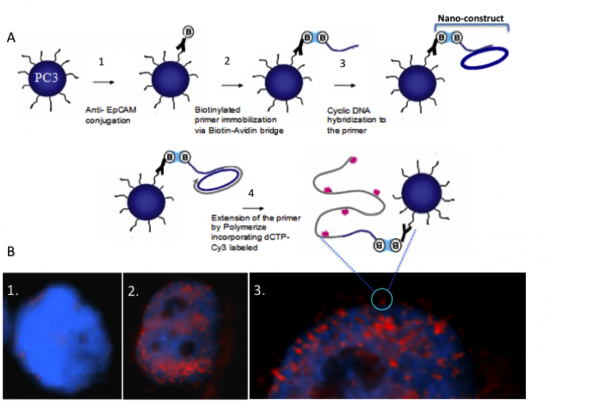Cell Marker Quantitation
Knowledge of protein expression is key to the understanding of many genetic disorders. Cell surface specific markers are often exploited in the development of new diagnostic and therapeutic modalities for the management of cancer. A common challenge in diagnostic analysis via immunolabeling is insufficient sensitivity to detect expression of low-abundance targets. To achieve high detection sensitivity it is typically necessary to amplify the probe−target complex.
We have developed a biosensor for direct and sensitive quantitation of corresponding analytes in the surface-immobilized format that is ideally suited for identification of specific protein markers on cell surfaces. Our labeling strategy translates the antigen–antibody recognition processes into a DNA detection event that can be amplified via isothermal Rolling Circle Amplification (RCA) reaction. Since the amplification is isothermal, the RCA process preserves the integrity of the antibody-antigen complexes and can therefore be used to monitor the expression of specific cell markers on live cells. In a collaborative project with Massachusetts General Hospital, we applied this approach to monitor the expression of cancer-cell surface-protein marker EpCAM (an epithelial cell-adhesion molecule) on human prostate cancer-cell line. Furthermore, by merging the single-molecule detection power of RCA reactions with microfluidic technology, we demonstrated that the identification of specific protein markers can be achieved on tumor-cell surfaces in miniaturized nanoliter reaction droplets.


